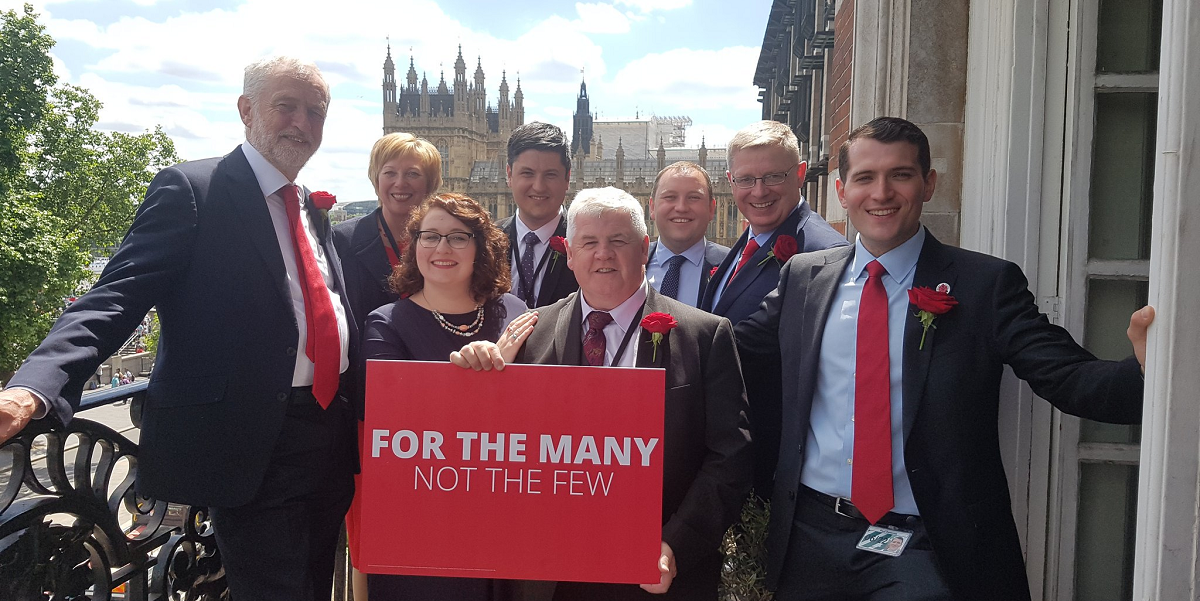A question of trust
Scottish Labour now has an opportunity to build on its election success At the start of the general election campaign, the received wisdom in Scotland was that the best Labour could expect was for Ian Murray to hold onto his seat...
Scottish Labour now has an opportunity to build on its election success
At the start of the general election campaign, the received wisdom in Scotland was that the best Labour could expect was for Ian Murray to hold onto his seat in Edinburgh South. As the campaign progressed, Scottish Labour started to grow in confidence, and party activists dared to talk out loud not only of holding there, but about winning East Lothian. But none of us would have dared to dream the end result. Scottish Labour returned seven MPs to Westminster and narrowly missed out in several more seats. After the 2015 result, it had felt as if Labour was down and out in Scotland for a generation. So what happened?
Many of us who had campaigned in the local elections had picked up on a notable change in the public’s mood towards the SNP. Time and time again we heard: “Anyone but the SNP” from voters with many campaigners reporting real anger directed at Nicola Sturgeon’s party. However, this protest vote wasn’t necessary going to come to us.
The nature of the voting system in the local elections where voters rank candidates in order of preference did allow us to open up a genuine conversation with voters, while the timing of the general election so soon afterwards meant we could continue to focus on domestic issues, with the SNP’s failings in health and education dominating the doorstep conversations and the TV debates.
The real turning point was the launch of the manifesto. Labour had produced a set of policies which articulated the values people thought it should stand for clearly and boldly. Jeremy Corbyn’s conviction and authenticity were clear but just as importantly in Scotland our candidates spoke with the same authenticity and articulated their own experiences in their communities.
Paul Sweeney – one of the surprise victors on election night – was a shipyard worker and his campaign focused on his local credibility and his involvement in the restoration of Victorian winter gardens in his part of Glasgow; Martin Whitfield was a primary teacher in his local school. When they spoke about urban regeneration or the impact of poverty on attainment levels, they spoke with empathy and in doing so, won the right to be heard.
After three years of being shouted at by voters or facing people who refused to make eye contact with you, the experience of running street stalls where you run out of stickers or door-knocking sessions where you run out of posters was somewhat disconcerting. The joy and energy among party members here was – and is – palpable and this must not be lost but used to build up the party from the roots.
But Labour certainly cannot afford to be complacent. The Conservatives are on the march, with their vote share almost doubling since 2015.
Some in Scottish Labour will argue that a more radical campaign should have been fought. They feel that the strong stance against a second referendum harked back to the Better Together campaign and was therefore damaging. Others are still incredibly proud of the part they played in keeping the UK together. That tension within the party will not go away.
And in the country as a whole, we are still some way off moving the political debate beyond the constitution.The challenge for Scottish Labour – which it failed in the 2015 general election and the Scottish elections – is to articulate the benefits of the UK and oppose a second referendum without alienating the people who voted yes. It’s a difficult balancing act and no two constituencies are the same.
Beyond the constitution, how should we build on our most recent success and where should our priorities lie?
A couple of weeks after the election, the Scottish parliament passed its first two new pieces of legislation in over a year: the first a cut in air passenger duty and the other legalising the docking of working dogs’ tails. Both were supported by the Conservatives. It just goes to show that the SNP do not govern in Holyrood with the radicalism they claim in Westminster. So our seven MPs need to campaign against Tory austerity and demonstrate they can make a difference, whilst our MSPs hold the SNP to account in Holyrood.
For two years, Scottish Labour has either been hated or written off as an irrelevance. Now that the voters are listening, we need to keep talking with them about the issues they care about. The rebuilding of trust and engagement has begun but the lessons of the past are still too painful to be forgotten.

